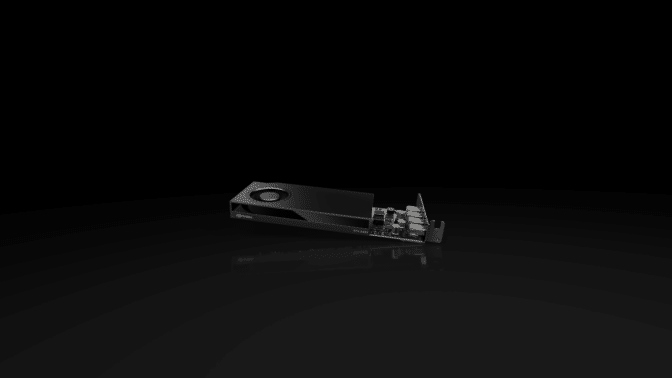Nvidia's range of workstation graphics cards expands this week with two new low-profile graphics cards, the RTX A1000 and the RTX A400, designed to provide all the performance necessary for compute applications in a smaller package.
The official renderings show the GPUs have a low-profile, single-slot architecture, and since their power output is restricted to 50W, neither card requires an external power connection. This is the lowest TDP among all modern Nvidia desktop graphics cards available.

The RTX A1000 seems to be built on the GA106 GPU and comes with 2304 CUDA cores, 72 Tensor cores, and 18 RT cores. According to Nvidia, It can achieve up to 6.74 TFLOPS of FP32 computation performance, translating into a clock speed of around 1,463MHz. The card has 8GB of GDDR6 memory running at 12Gbps across a 128-bit memory bus, resulting in a maximum bandwidth of 192GB/s.
Although NVIDIA has not confirmed the GPU used for the RTX A400, it appears to be GA107-based, with 768 CUDA cores, 24 Tensor Cores, and 6 RT cores. This model features 2.7 TFLOPS of FP32 computing, which equates to around 1,758MHz clock speed. This card's memory capacity is limited to 4GB of GDDR6, 64-bit memory bus specifications, and a 96GB/s maximum memory bandwidth.
Unlike Ada-based versions, these cards do not support AV1 encoding, but they can decode and encode codecs such as H264 or H265. The RTX A1000 is now available worldwide from partners such as PNY and Ryoyo Electric, and the RTX A400 will become available starting in May.
Discuss on our Facebook page, HERE.
KitGuru says: Are you planning on building an entry-level workstation for a small project?
 KitGuru KitGuru.net – Tech News | Hardware News | Hardware Reviews | IOS | Mobile | Gaming | Graphics Cards
KitGuru KitGuru.net – Tech News | Hardware News | Hardware Reviews | IOS | Mobile | Gaming | Graphics Cards


